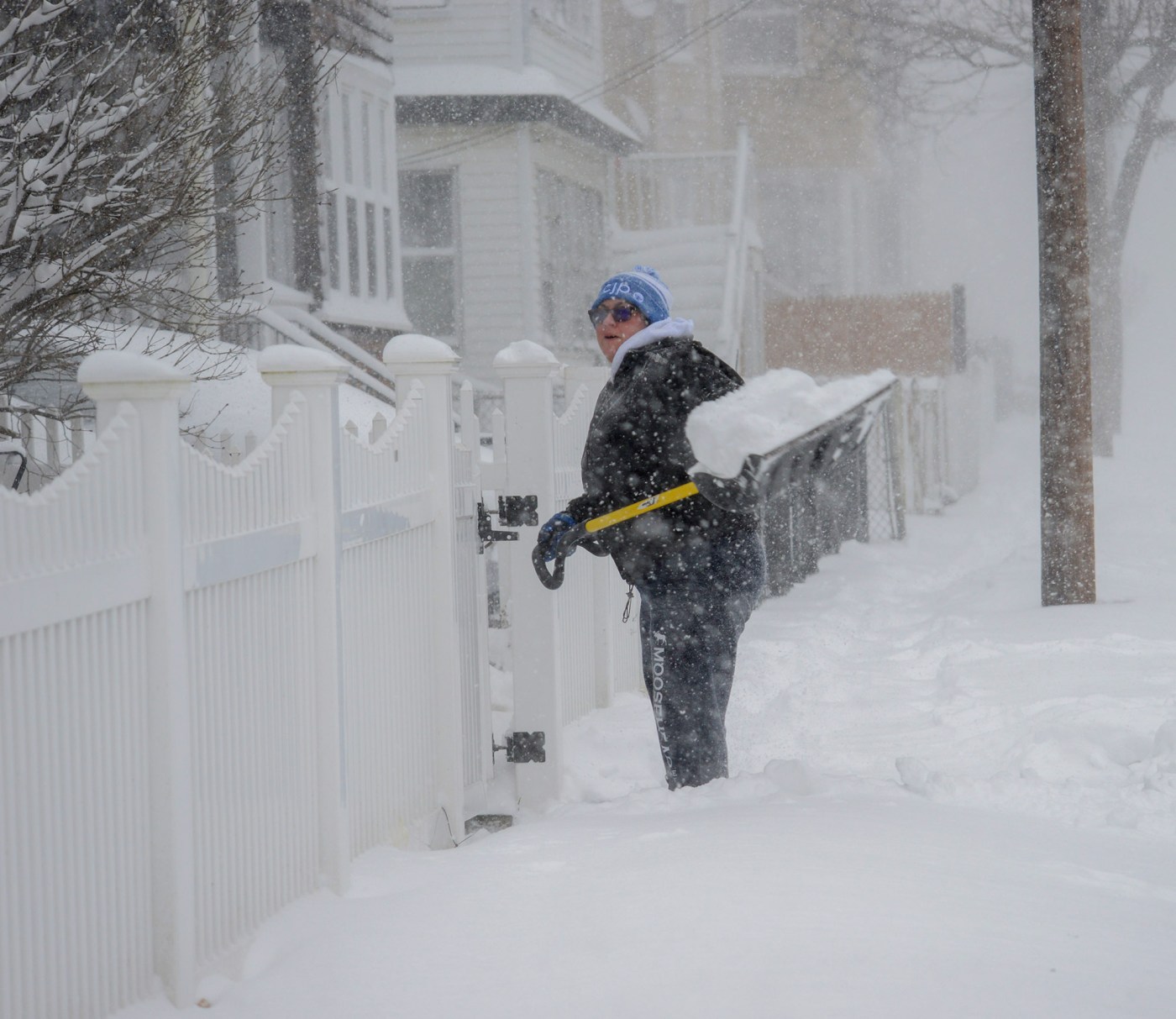
Watertown residents will soon have to shovel snow from sidewalks, joining other municipalities in Massachusetts
Watertown has become the latest city or town across Greater Boston to force residents to shovel sidewalks in front of their homes after a snowstorm and fine those who repeatedly ignore the regulation.
After hearing concerns from residents and the city manager, the Watertown City Council passed an amendment to an ordinance last week requiring homeowners to clear snow and ice in front of their properties within 24 hours after a storm ends.
Owners of smaller properties who don’t clear out initially will receive a written warning before facing a $50 fine on a second violation and $100 for a third. For larger properties, the punishments will cost double.
But at least for the remainder of this winter, residents will not be fined at all, according to officials. City Manager George Proakis raised concerns about enforcement when the ordinance goes into full effect next year.
The ordinance highlights how the city manager, superintendent of public works, Watertown Police Department and code enforcement officer will be “empowered and authorized” to enforce snow and ice removal, but Proakis said a short-staffed city workforce will be hard pressed to ensure scofflaws are being punished.
“We don’t have an enforcement team to write tickets for failure to shovel snow. It’s an interesting question as to whether or not we would want to do that,” Proakis told the council last Tuesday. “We would certainly do our best to be responsive to individual complaints when people say ‘Hey, there’s a problem here. I can’t get through this area.’”
Residents will be required to remove snow from at least 42 inches of the sidewalk or the full width if the sidewalk is narrower.
Residents “unable to meet the physical requirements of this section, particularly for low-income, elderly, or disabled residents, or for other unusual circumstances” will be allowed to apply for exemptions, the ordinance states. In order to receive a pass, they will be required to provide documentation of their income level and/or disability.
Resident Elodia Thomas argued that those in the neighborhood try their best to clear snow and ice from in front of their properties and that if the city is having trouble with one particular area, the issue should be addressed in another way.
“I see no data in any of these reports of how many complaints there have been. Let’s get real about this. This is so anti-Watertown,” Thomas said. “These sidewalks are city property. They’re not my property. I do my best to be a good citizen in this community, and the way this reads I find it totally offensive.”
The idea for the requirement came up as a recommendation from a broad range of residents of all ages when the city enacted a bicycle and pedestrian safety plan in February 2021, Council Vice President Vincent Piccirilli said.
Boston and Cambridge have had resident snow shoveling ordinances for “many decades,” while Belmont and Newton have implemented requirements more recently, Piccirilli said. Officials in Waltham expanded their sidewalk shoveling ordinance last year, exempting one-, two- and three-family households, he added.
More cities and towns have passed ordinances and by-laws regulating whether homeowners must shovel public and private sidewalks and how long they have to do so since the Supreme Judicial Court in 2010 overturned a rule that property owners could leave snow and ice as is without facing liability.
“The point was made that we should be going after scofflaws, not the people already shoveling snow,” Piccirilli said. “But in order to go after scofflaws, there actually needs to be a law that they’re not following. This is what we’ve attempted to achieve here: to go after the problem areas in the town, the absentee landlords which there are a lot of.”
Watertown resident Elan Rhode agrees that sidewalks need to be cleared but she said she’s against the city requiring residents to do “unpaid labor.”
“We already pay taxes,” she said. “Why aren’t our tax dollars being used to clear the sidewalk? Why must we as homeowners undertake the burden of unpaid labor to clear land that we don’t even own?”


